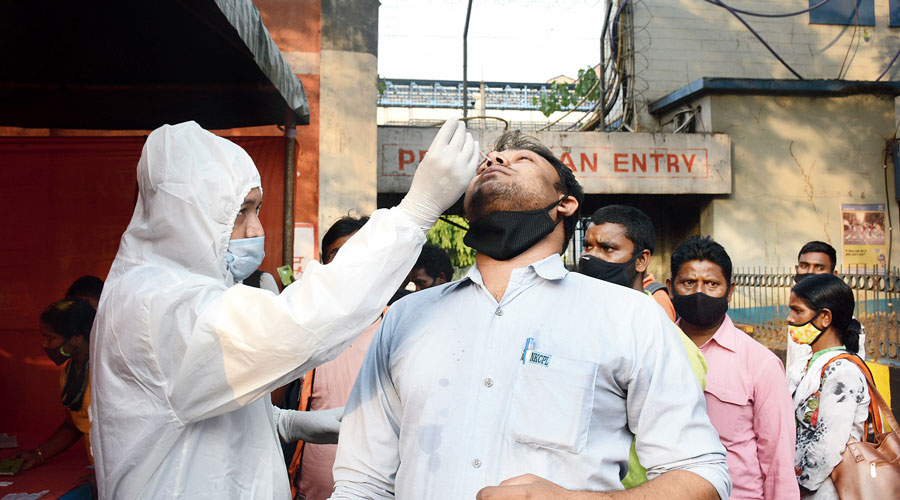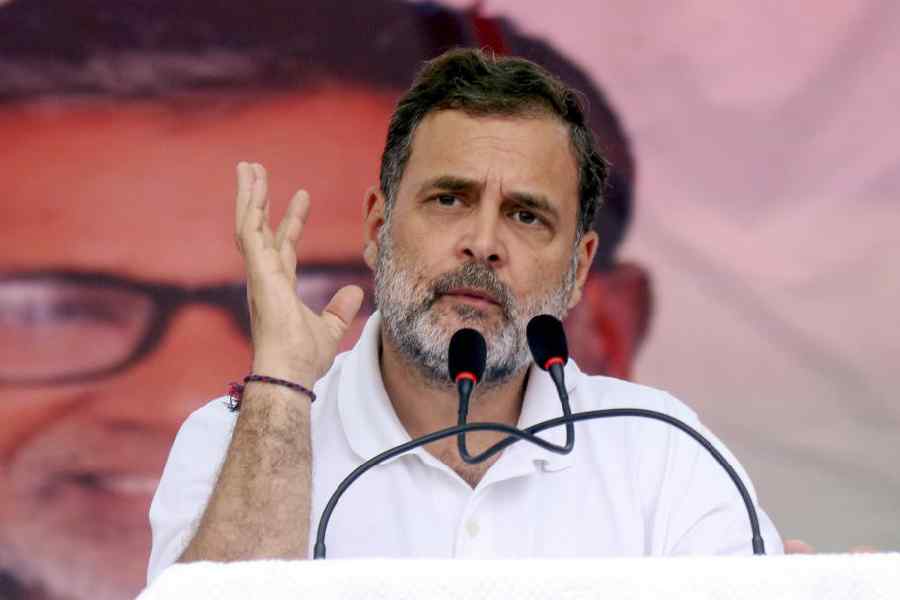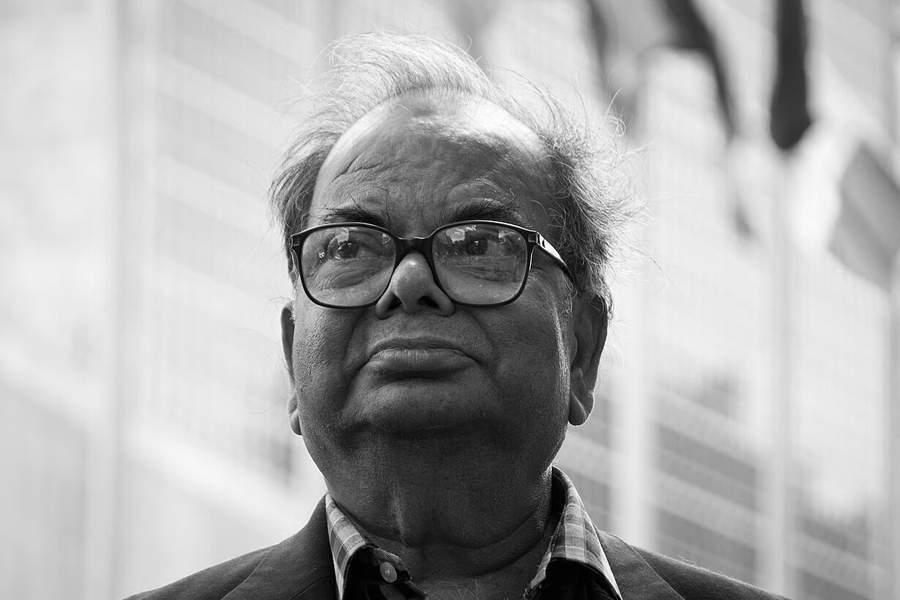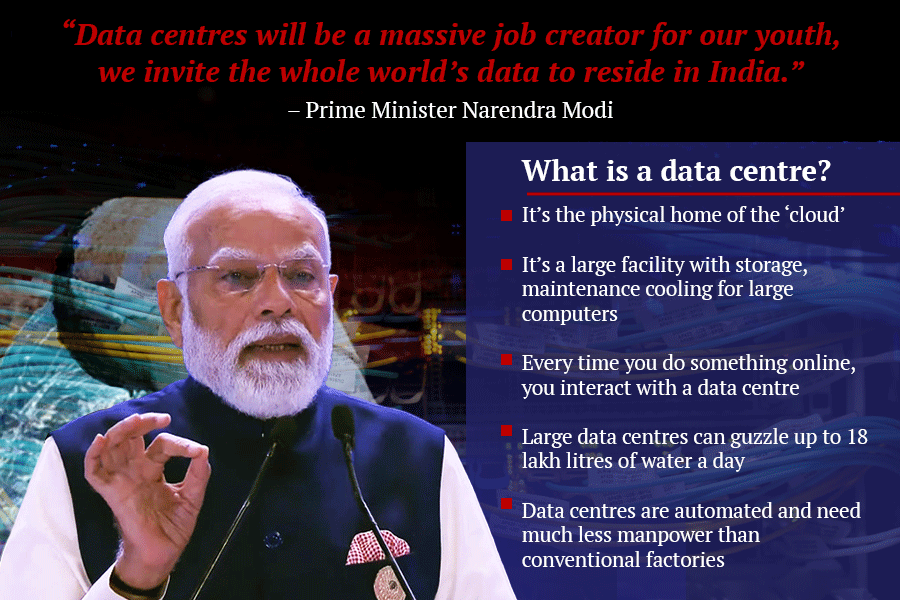A positive Covid-19 test result is not mandatory for admission to a coronavirus health facility, the Union health ministry said on Saturday, releasing an admissions policy that also says “no patient should be refused services on any count”.
The health ministry has directed chief secretaries of all states and Union Territories to issue necessary orders within three days to enforce the new admissions policy that the ministry has described as “more patient-centric” and “based on need”.
The policy comes at a time India’s Covid-19 epidemic’s surge has added an average of 389,800 new patients every day over the past week, raising the number of active patients to over 3.72 million and intensifying shortages of hospital and oxygen-supported beds.
Among the 3.72 million active patients, according to health ministry data, around 202,000 patients on Saturday were in hospital care — 137,768 (3.7 per cent) on oxygen support, 49,894 (1.34 per cent) in intensive care units and 14,521 (0.39 per cent) on ventilators.
Doctors say it is unclear how the new admissions policy would impact patients in the hardest-hit districts where massive and sustained clusters of new cases have meant hospitals are grappling with shortages of beds and oxygen.
“Currently only those patients who are severely hypoxic (deprived of oxygen) are able to get hospital beds,” said Oommen John, a senior physician and researcher at The George Institute for Global Health, New Delhi. “What would already overloaded hospitals do if all symptomatic patients turn up for a patient-centric experience?”
The admissions policy says no patient should be refused services on any count. “This includes medications such as oxygen or essential drugs even if the patient belongs to a different city,” the ministry said, adding that patients should not be denied admission on the ground that they do not have identity cards of the city where the hospital is located.
The ministry said beds should not be occupied by persons who do not need hospital care.
In some states, doctors say, the proportions of patients in hospitals are significantly higher than what they should be given the active cases reported by them. This, they say, could be explained only if cases are undercounted or if beds are occupied by those who do not need hospital care.
The Delhi state Covid-19 bulletin on May 7, for instance, reported 19,922 patients in hospital. But the number of active patients was about 98,000 ten days ago and nearly 100,000 a week ago, assuming a lag between new infections and demand for hospital beds.
These numbers suggest that nearly 20 per cent of Delhi’s Covid-19 cases are in hospital, a proportion significantly greater than about 6 per cent (3.7 per cent on oxygen, 1.34 in ICUs and 0.39 on ventilators) nationwide, according to health ministry data.
Two weeks ago, doctors in Gujarat had also noticed that the demand for and occupancy of hospital beds was inconsistent with the state’s number of active cases — about 115,000 on April 25.
“Covid-19 is mild in 85 to 90 per cent of patients — even if we assumed that 20 per cent of Gujarat’s Covid-19 patients required hospital beds, the actual number of beds occupied was much higher than what the demand should have been,” said a public health specialist in Gujarat.
Such anomalies, experts say, represent undercounting of cases.
“Improving outcomes will not be determined by how we triage and keep as many at home and recognise early those who need hospital care,” said John.











